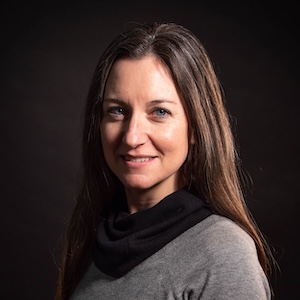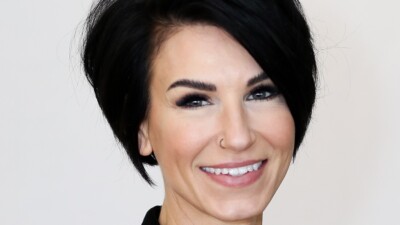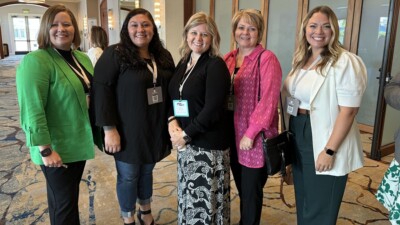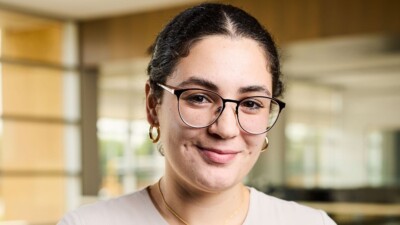Ahmad Muslim encourages engineers to be their full selves at work and tackle challenges head-on.
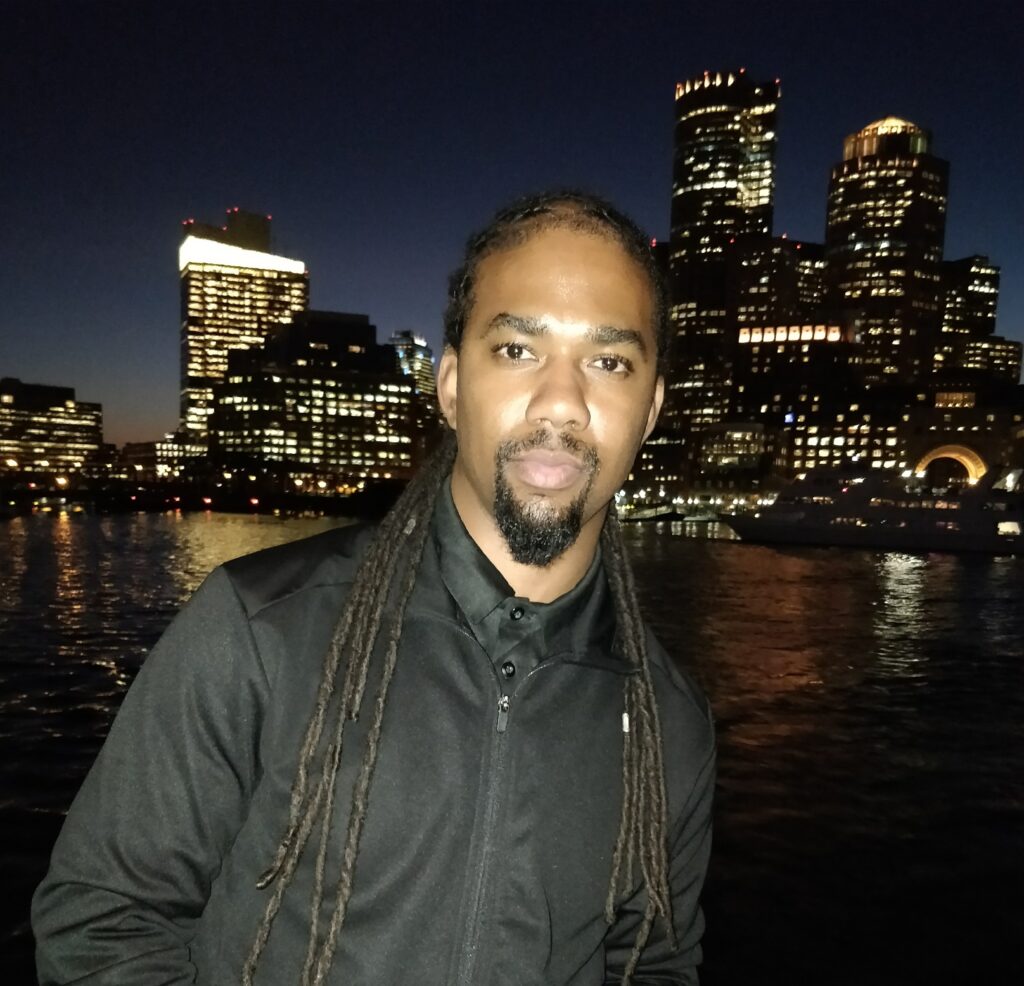
When Ahmad Muslim was about nine years old, he went to his grandmother’s house and disassembled her VCR — a perfectly fine, operational VCR — just to see what was inside. He took it apart, put it back together, and then explored other household items.
Muslim’s mother recognized his inquisitive nature and innate math skills, which she and his brother admit do not run in the family. As a single mother raising two boys in Washington, D.C., she later told Muslim’s high school guidance counselor about his childhood tinkering and desire to know how things work. When college applications rolled around, engineering seemed like the right fit.
“I definitely credit my mom, and I’ve always been very fortunate to have people who fanned my flame and didn’t try to put it out,” said Muslim.
Muslim studied electrical engineering at Florida A&M University in Tallahassee and joined Proctor & Gamble (P&G) in Cincinnati in 2008. Like many recent graduates, he didn’t fully understand what being an engineer at the company meant but was grateful to receive a job offer in an uncertain economy.
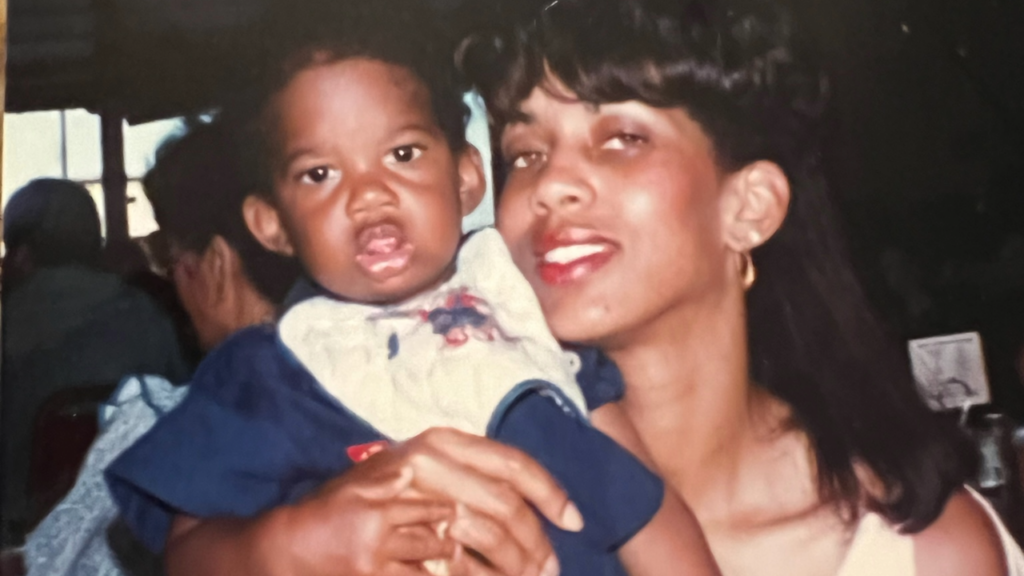
“I’ll be honest, when I thought of P&G, the first thing that came to mind was the products, but as I navigated my career, it’s been extremely fulfilling,” said Muslim. “I’ve been fortunate to work on many different platforms and have many different experiences where I truly get to exercise that engineering muscle, whether it’s interfacing with our manufacturing sites and helping them troubleshoot or solve a problem or more upstream things like integrating new technologies, machine learning, or AI into our business and processes.”
For the past 15 years, Muslim has worked in P&G’s beauty sector as an intelligent controls and automation engineer. He and his team provide the brains — the electrical hardware and software — of the sector’s manufacturing systems, including data and integration. Early on, he led the installation of a new packing system for Old Spice products, coordinating with numerous suppliers, designing software and hardware, and integrating multiple systems into the facility. He also helped start up two manufacturing plants by installing new systems, designing new processes, and integrating the facilities. Such projects exposed him to technical challenges and other engineers outside his expertise.
“I was an electrical engineer on purpose because I didn’t like chemistry,” said Muslim. “But I’ve had opportunities over my career to work with a lot of R&D, chemistry, and biology and gained a greater appreciation for that and how different materials interact with different structures. I have opportunities to work with mechanical engineers to understand torques, chemical folks on thermodynamics, and civil engineers on loads and building frames.”
He also values the non-technical skills he has developed, such as managing people and relationships, communicating effectively, and collaborating.
“You need the technical foundation to be an effective engineer, but you can’t get the work done by yourself — that’s just impossible. So, you also need to be able to convey a message, influence people, and articulate a problem statement,” he said.
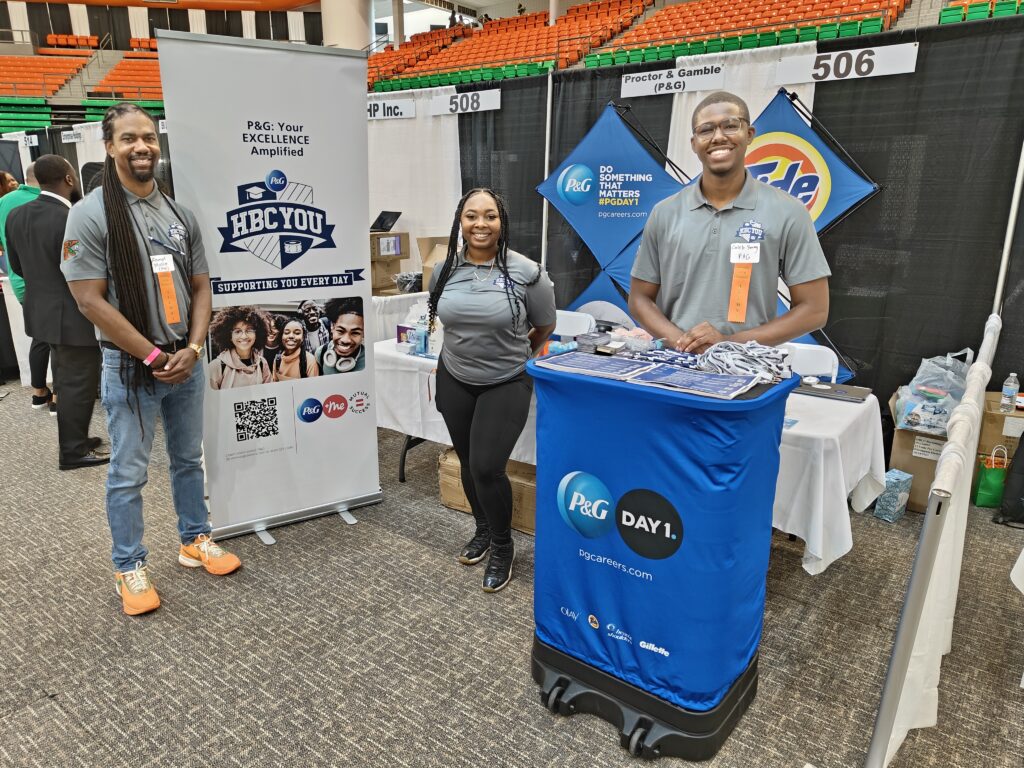
Muslim works in a dynamic environment where the next problem may be right around the corner. “When a production system goes down, it’s all hands on deck. I’ve had instances where I’ve gotten an email on a Thursday and had to jump on a plane on Friday morning to help solve something. As much as some of us complain about those fire drills, so to speak, I think it also taps into why we all became engineers in the first place, and we all get excited whether we admit it or not.”
But engineering problems aren’t the only challenges Muslim has encountered. Day-to-day social expectations and assumptions impacted his initial career and continue fueling his passion for developing inclusive cultures.
“I always like to push the line in terms of style and appearance, so a thought played in the back of my mind: I have to be a certain way to be successful here. I have to act a certain way, show up a certain way, and talk a certain way,” said Muslim. “For the first five or so years of my career, that was a constant theme in my mind, and it hindered me quite a bit. I spent so much time worried about the perception that I wasn’t fully unleashing all of what I had to offer. All that focus could have been put towards innovation or solving the next problem.”
Muslim attributes P&G and its employees for cultivating a culture that encourages everyone to be themselves at work.
“You don’t owe it to anyone to try to be somebody that you’re not — to try to fit a mold that isn’t who you are,” he said. “Once I really started to embrace my individuality and bring that into the workplace, it initially shocked me because everyone was so receptive. They were like, ‘I love your hair, I love the way you dress.’ I was worried for so long, and it was liberating to have that breakthrough. It also really opened me up to start doing the equality, inclusion, and diversity side of things in my career. I felt empowered to encourage everybody to show up in the ways they want and to be their full selves.”
Muslim became actively involved in affinity networks and gender equality programs and started mentoring to increase diversity awareness. He leads lunch-and-learns to encourage more equitable environments, help the lightbulbs go off, and foster continuous learning. “It’s personal to me. I want to see environments and spaces where women are treated equally because I come from a place where the majority of the people who raised me and got me to the point that I am were women.”
He also started exploring other forms of diversity that often go unseen. “I started researching neurodiversity more because it wasn’t something I was very aware of myself. It’s important that everybody feels like they can be their best selves, and those characteristics can be more challenging because you have to deal with them in silence, and no one can see them. No one would ever know to ask you if you don’t disclose them in some kind of way.”
When it comes to the inclusion of African Americans in the workplace, Muslim feels like society has advanced yet regressed in certain respects.
“Many younger people are a lot more unapologetic than I was, and I’m encouraged by that,” he said. “They’re empowered to use their voice because of the culture they’ve grown up in. In the last 15 years, they’ve seen things happen in society that I didn’t see as a child — not that they weren’t happening, but it wasn’t as visible and prevalent. Things travel at the speed of light now. It’s on your phone, it’s on your TV, it’s all over, and you can’t run from it. I think that has created a certain level of rebelliousness or self-awareness and pride that has allowed younger people coming into the workforce to be a little more aggressive, and I appreciate that about them, but I do think there’s still a ton more work to do.”
Muslim is optimistic, though, mainly because more information is readily available. Such information can equip and educate all of us to be more accepting and adaptable. It also holds us all more accountable for our words and actions.
“There’ll be a social media campaign if you make a misstep in that regard,” he said. “You can’t be secretive about your hate for any particular group anymore. It’ll get discovered, it’ll get called out, and it will affect your business.”
Muslim remains excited about engineering, especially as technology evolves, and looks forward to new opportunities to learn, reinvent, and add to his toolbox. He aims to continue building his technical and non-technical skills to solve challenging engineering problems that benefit P&G’s business while being a diversity and inclusion leader in the workplace and elsewhere.
“I love the technical work, but my legacy will definitely be in what I’ve poured into other people and the culture that I’ve created here and will leave behind,” he said. “And I tell everyone in our organization, as much as you may view me in a certain light as it relates to diversity, equality, and inclusion, I’m still on the journey just like everybody else — there’s no endpoint.”
